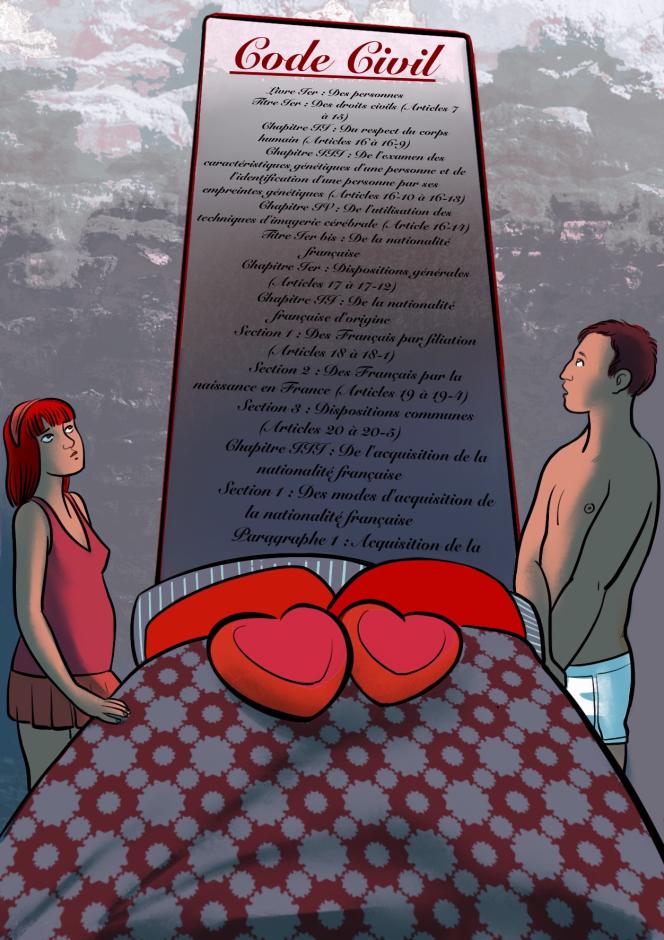By Evi Tsakali,
The French judicial system pronounced, in 2019, a divorce with exclusive blame to the wife of 66 years because of her refusing to have sexual relations with her husband. With the support of feminist organizations, she is taking her case against France to the European Court of Human Rights. It was yet another example of the application of a quite delicate notion of French family law, “marital debt” (obligation conjugale in French), that illustrates why it constitutes a very outdated provision.
What is obligation conjugale?
According to Article 215 of the French Civil Code, “Les époux s’obligent mutuellement à une communauté de vie” (“The spouses oblige each other to a community of life”). In French Family Law, both the doctrine and jurisprudence affirm that this “community of life” implies the obligation of the spouses to have sexual relations with each other; and, according to a number of decisions by the Cours d’appel (Courts of appeal) or the Cour de Cassation (Court of Cassation), regular relations and of a certain quality. To put it simply, the doctrinal interpretation of this article of the French Civil Code obliges spouses to have sex with each other; regular and good sex. In essence, in France, sex in a marriage is not a right, but an obligation, a legally binding obligation. The aforementioned Article constitutes one of the articles of the French Civil Code that have remained intact since the first Napoleonian Civil Code of 1804, and it could not be more problematic for a number of reasons, both legal and social.

What makes obligation conjugale so problematic?
I remember the way our Family Law professor described the notion in the amphitheater and explained how a woman had managed not only to file for divorce from her ex-husband on the grounds of him not having sexual relations with her as frequently as she would like but also asked for monetary compensation on the same grounds (and she got it). The whole amphitheater burst out laughing (and mainly because it was the woman who filed for divorce because she did not have as much sex as she would want to, which makes it even worse); I did not find it funny. Actually, it sounded very problematic for two quite obvious reasons.
First of all, the French Civil Code in this article does not provide for asexual and demisexual individuals, who are apparently neglected by this provision of an obligation to have sexual relations. Additionally, and more relevant than ever in the era of #MeToo, how exactly is rape within a marriage punished in France? By referring to Article 215, the rapist can claim that the other spouse was obliged to have sexual intercourse due to obligation conjugale. That has posed a problem in French jurisprudence with the Cour de Cassation establishing, via a series of decisions, the following solution; since marriage is supposed to lead to the creation of a family, the sexual intercourse leads to a potential pregnancy (vaginal penetration) is — at least by the principal — part of obligation conjugale, whereas everything else (our professor used the example of anal sex that provoked another unnecessary burst of laughter in the amphitheater) can constitute rape. This solution is at least inadequate, and very degrading for the victims, making it very justifiable that the French public opinion and press have instigated debates for the past years concerning the pertinence of obligation conjugale, due to its rather anachronistic nature.
References
- Le droit au sexe dans le mariage est-il une obligation?, lemonde.fr, Available here
- Code Civil, Article 215, legifrance.gouv.fr, Available here




